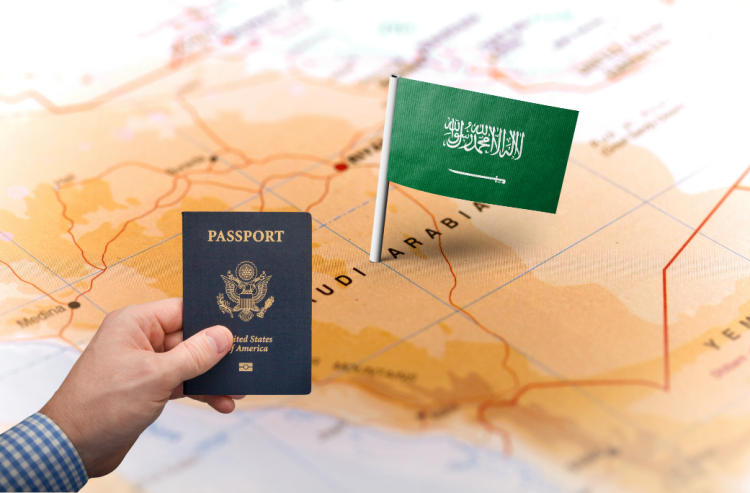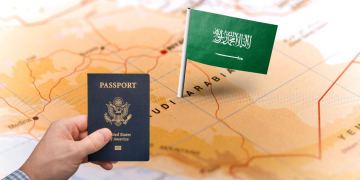The Kingdom of Saudi Arabia, with its rich cultural heritage and economic significance, has become an increasingly popular destination for travelers seeking to explore a unique blend of tradition and modernity. For citizens of the United States considering a visit to the Kingdom, understanding the entry requirements is crucial. In this article, we will explore whether U.S. citizens need a visa to travel to Saudi Arabia and the specific regulations that govern this process.
Saudi Arabia Visas for U.S. Citizens
U.S. citizens must obtain a visa to enter Saudi Arabia for tourism, business, or any other non-religious purposes. The Saudi Arabian government has implemented a structured visa system to facilitate entry for foreign visitors while maintaining security and regulatory control. And here you can find a more comprehensive guide about the different types of Saudi visa for us citizens and their requirements and how to apply for them.
Or you can read a the following summary:
Saudi Arabia offers various types of visas tailored to different purposes of travel. The most common types include, but are not limited to, the following:
- Tourist Visa
- Business Visit Visa
- Employment Visa
- Residence Visa
- Premium Residency Visa
- Family Visit Visa
- Hajj and Umrah Visa
- Student Visa
Can U.S. citizens obtain a Saudi Arabia e-Visa?
As of 2019, all U.S. nationals can obtain a Saudi Arabia e-visa. As part of their national economic and social plan, Vision 2030, Saudi Arabia created an electronic visa system to facilitate the visa process for certain eligible foreign nationals.
For U.S. citizens, the e-visa costs range from approximately $190 to $250 USD, which includes the application fee, health insurance fee, and service provider fees, and can be obtained easily online. The Saudi Arabia e-visa is the most convenient option for U.S. citizens. It allows for multiple entries and remains valid for up to one year. Once the e-visa holder enters the country, they can travel in Saudi for up to 90 days. Travelers need only ensure they have a valid passport, regardless of the document’s expiry date. Minors should have an adult parent or legal guardian assist them with their application.
Can U.S. citizens obtain a visa on arrival?
Fortunately, U.S. citizens traveling to Saudi Arabia have options when it comes to their visa selection. Travelers from the U.S. can also choose to obtain a visa on arrival at one of the international airports in Saudi Arabia. They can use one of the self-service kiosks or go to the passport control office to apply for their visa on arrival.
Usually, the visa on arrival is valid for up to one year from the date of issuance and allows for stays of up to 90 days. Of course, U.S. citizens obtaining a Saudi visa on arrival should also be at least 18, or have a legal adult with them if they are minors, and hold a valid passport.
What about U.S. citizens visiting for Umrah?
Both the e-visa and the visa on arrival can be obtained for the specific purpose of performing Umrah. As of recent updates, U.S. citizen pilgrims can perform Umrah using their electronically issued visa. This simplifies the process, allowing for a more streamlined experience when planning to perform Umrah.
Preparing to Travel to Saudi Arabia
It’s important to note that visa requirements and regulations can change, and travelers from the United States are strongly advised to check the official website of the Saudi Arabian government or consult with the nearest Saudi Arabian consulate or embassy for the most up-to-date information before planning their trip.
As of the latest information available, U.S. citizens planning to visit Saudi Arabia for tourism, business, or other non-religious purposes must obtain a visa in advance. The process involves submitting an online application, providing necessary documents, paying applicable fees, and receiving electronic authorization before arrival. As the Kingdom continues to evolve its tourism initiatives, travelers should stay informed about any changes to visa regulations to ensure a smooth and hassle-free entry into Saudi Arabia.









